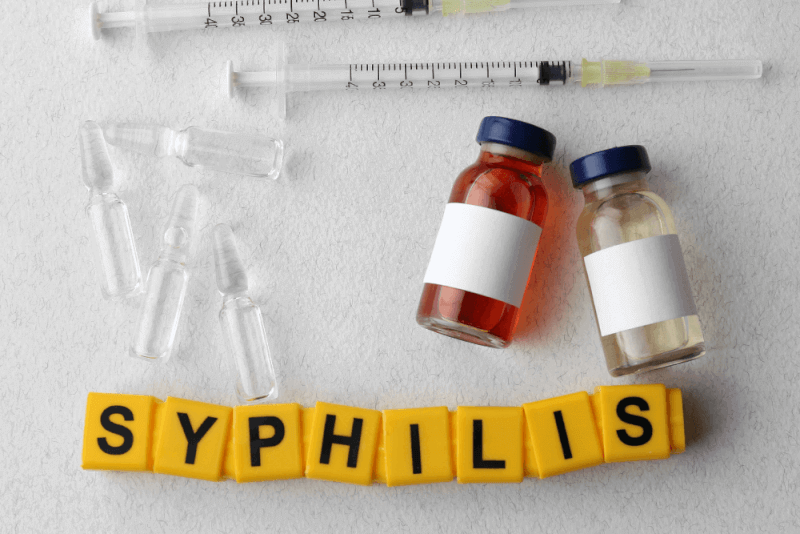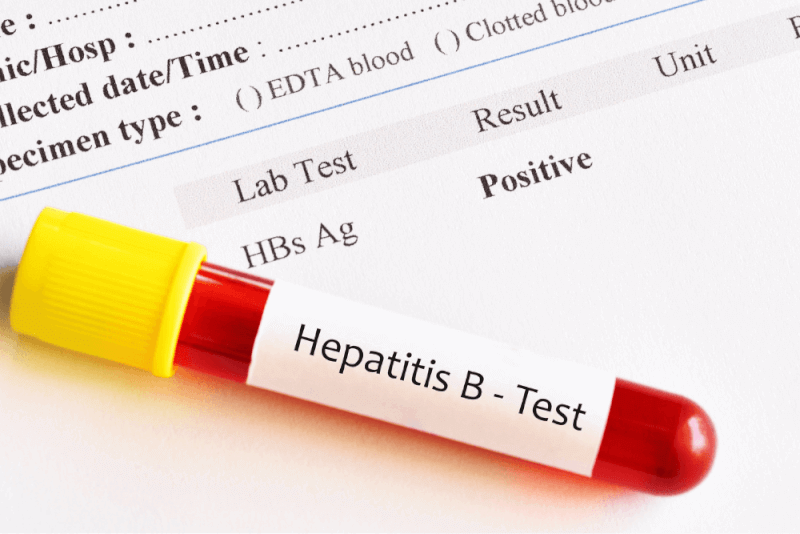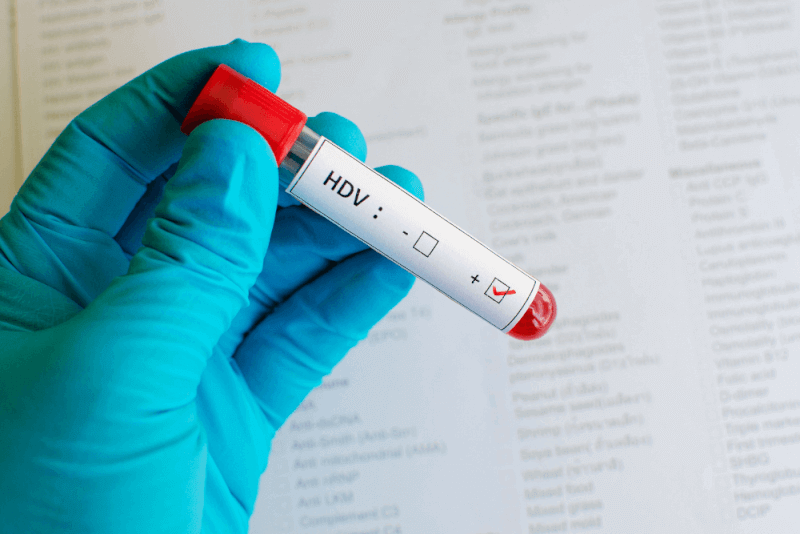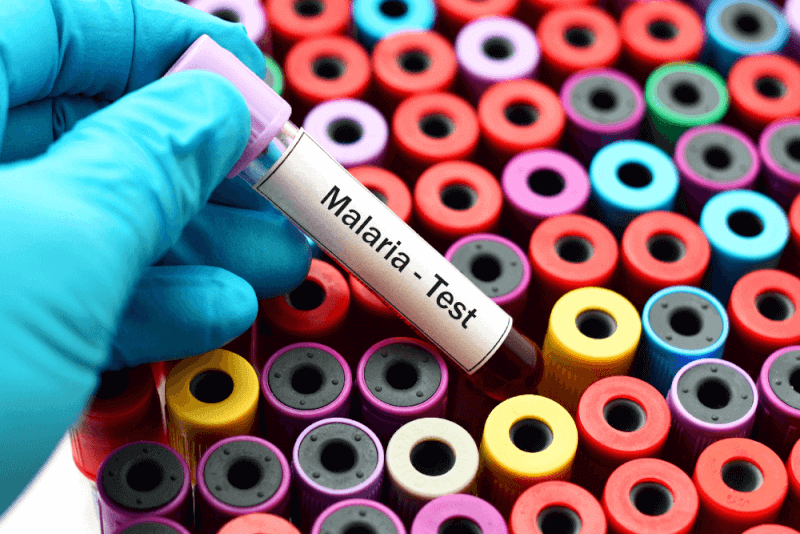What is Syphilis?
Syphilis is an infection caused by bacteria, typically spread through sexual contact. It starts as a painless sore on the mouth, rectum, or genitals and can be passed to a baby during pregnancy and birth.
The infection can remain in the body for years without symptoms, posing a risk of reactivation. Untreated syphilis can damage the brain, heart, and other organs, making it crucial to seek treatment upon noticing any symptoms.
Diagnosis Criteria for Syphilis
Several tests can diagnose syphilis:
Blood Tests
Blood tests can confirm the presence of antibodies, proteins produced by the immune system to fight infections. Antibodies for syphilis-causing bacteria can remain in the body for years, so blood tests can detect current or past infections.
Fluid from Sores
Testing the fluid from sores in the rectum, mouth, and genitals in a lab can confirm syphilis.
Spinal Fluid
If syphilis affects the nervous system, spinal fluid may be tested. This involves extracting fluid from between the spinal bones, a procedure known as a lumbar puncture.
Symptoms of Syphilis
Syphilis symptoms vary by stage, which can overlap and occur out of order. The infection can also persist without symptoms for years.
Primary Syphilis
Primary syphilis is the early stage, marked by the appearance of chancres, which are painless sores at the infection site. These sores typically appear within three weeks of exposure and heal on their own within three to six weeks, often going unnoticed due to their resemblance to pimples or hidden locations like the vagina or rectum.
Secondary Syphilis
As the initial sores heal, or a few weeks afterward, rashes begin to appear, characterized by:
- Typically non-itchy
- Rough, red, or reddish-brown
- Sometimes too faint to notice
These rashes often start on the torso and spread to other areas, including the palms and soles. Additional symptoms in this stage may include:
- Sore throat
- Fever
- Swollen lymph nodes
- Hair loss
- Muscle aches
- Weight loss
- Fatigue
These symptoms may resolve on their own but can recur for months or years without treatment.
Latent Syphilis
Untreated secondary syphilis can progress to the latent stage, where no symptoms are present. This stage can last for years, with potential for the infection to become active again, causing serious complications.
Tertiary Syphilis
Without treatment, about 30% to 40% of patients develop tertiary syphilis, also known as late-stage syphilis, causing severe damage to various tissues and organs, including:
- Brain
- Nerves
- Eyes
- Heart
- Blood vessels
- Liver
- Bones
- Joints
These complications can arise years after the initial infection.
Neurosyphilis
If untreated, syphilis can affect the brain, spinal cord, eyes, and other parts of the body, leading to severe, life-threatening health issues.
Congenital Syphilis
Pregnant individuals with syphilis can pass the disease to their babies through the placenta or during birth. Congenital syphilis can cause:
- Skin sores and rashes
- Bone changes
- Fever
- Jaundice
- Enlarged liver and spleen
- Anemia
Later symptoms can include deafness, dental issues, and saddle nose (collapse of the nasal bridge). Babies with syphilis may be born prematurely or stillborn.
Causes of Syphilis
Syphilis is caused by the bacterium Treponema pallidum. It is contagious during the primary and secondary stages and sometimes during the first year of the latent stage. Transmission occurs through contact with syphilitic sores, typically during sexual activity. It is not spread through casual contact with objects. Risk factors include:
- Unprotected sex
- Living with HIV
- Having multiple sexual partners
Treatment for Syphilis
Early diagnosis makes syphilis easy to treat. Penicillin is the preferred treatment at all stages, capable of killing the bacteria. Alternative antibiotics are available for those allergic to penicillin, and a procedure to desensitize the body to penicillin is also an option.
A single dose of penicillin is recommended for all stages. For infections lasting more than a year, additional doses may be required. Pregnant individuals with syphilis are also treated with penicillin.
Desensitization, administered by allergy specialists or immunologists, involves giving small amounts of penicillin every 15 to 20 minutes over about four hours.
Even if treated during pregnancy, newborns should be tested for congenital syphilis, and antibiotics are administered if infection is detected.
In some cases, treatment can cause a Jarisch-Herxheimer reaction, marked by fever, chills, nausea, pain, and headache, typically lasting less than a day.
Treatment Follow-Up
Post-treatment follow-up includes:
- Regular blood tests and exams to ensure the treatment is effective
- Avoiding sexual contact with new partners until the treatment is complete
- Informing sexual partners so they can be tested and treated if necessary
- HIV testing
Transmission of Syphilis
Syphilis is highly contagious, especially during the primary and secondary stages. It spreads through sexual contact or touching syphilitic sores or rashes. Pregnant individuals can pass the infection to their babies.
Complications of Syphilis
Untreated syphilis can cause various complications, increase the risk of HIV infection, and lead to problems during pregnancy. Treatment can prevent damage but cannot reverse or repair pre-existing damage. Potential complications include:
Gummas
Rarely, syphilis in its late stage can cause gummas—swollen areas—on the skin, bones, liver, or other organs. These usually resolve with antibiotic treatment.
Neurological Problems
Syphilis can lead to many neurological issues, such as:
- Headaches
- Bladder problems
- Paralysis
- Erectile dysfunction
- Meningitis
- Confusion
- Personality changes
- Difficulty concentrating
- Symptoms mimicking dementia
Eye Problems
If syphilis spreads to the eyes, it is called ocular syphilis, leading to:
- Eye pain or redness
- Blindness
- Changes in vision
Ear Problems
When syphilis affects the ears, it is called otosyphilis, causing:
- Hearing loss
- Tinnitus
- Vertigo
Heart and Blood Vessel Problems
Syphilis can cause the aorta and other blood vessels to swell and damage heart valves.
HIV Infection
Syphilis sores on the genitals increase the risk of contracting or spreading HIV during sexual activity, as the sores can bleed easily, facilitating HIV entry into the bloodstream.
Syphilis and Pregnancy
Untreated syphilis in pregnant individuals can lead to the infection spreading to the child. Nearly 40% of babies born to untreated syphilis patients die from the infection, usually transmitted through the placenta. Sometimes, it can be passed during birth through direct contact with syphilitic sores. Pregnancy-related complications include:
- Miscarriage
- Premature birth
- Low birth weight
- Umbilical cord issues
- Stillbirth
- Death within the first 28 days of life
The best time for treatment to prevent these issues is before the 26th week of pregnancy.
Stages of Syphilis
Syphilis progresses through four stages, each with different symptoms. The infection is highly contagious during the first and second stages, making sexual partners easily susceptible.
Primary Syphilis
Primary syphilis appears two to twelve weeks after exposure to the bacteria. This stage is marked by the appearance of painless sores on the genitals or mouth. These sores can be hard to detect due to their small size and painless nature and typically heal within weeks. Without treatment, the infection progresses to the secondary stage.
Secondary Syphilis
One to six months after the primary sores heal, a rough, bumpy rash appears on the body, including the palms and soles. During this stage, the infection can be transmitted through vaginal, anal, or oral sex, and symptoms may come and go for months or years. Without treatment, it progresses to the latent stage.
Latent Syphilis
In untreated cases, the infection enters the latent stage, marked by no visible symptoms. However, flare-ups can occur, and this stage can last up to 20 years, causing severe damage to bones, heart, nerves, or organs. Transmission is rare but possible. Without treatment, the infection progresses further.
Tertiary Syphilis
In about 20% of cases, serious health issues arise, marking the tertiary stage. These problems develop slowly and can include severe complications affecting various body parts.








